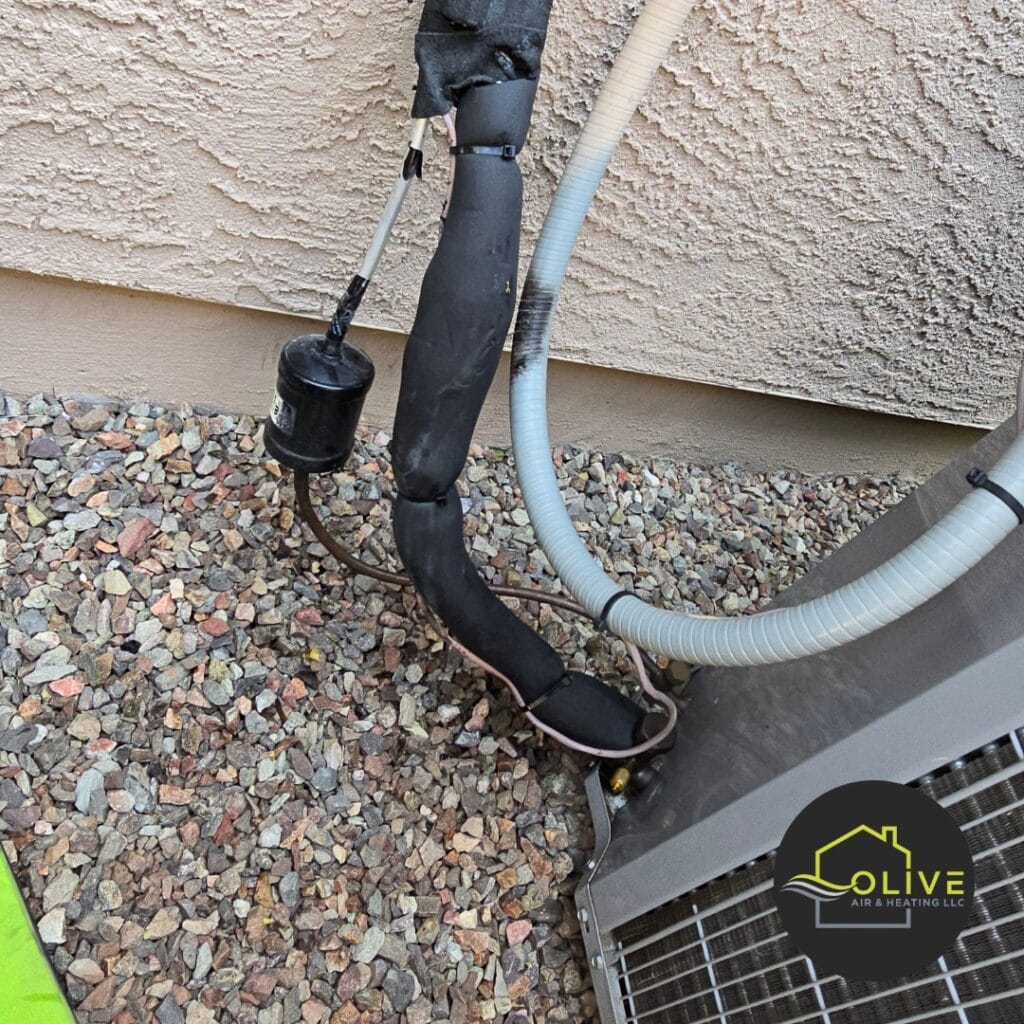Why Inspecting Electrical Connections is a Must
AC Repair? When it comes to keeping your air conditioning system running smoothly, safety should always come first. One of the most overlooked yet critical aspects of AC maintenance is inspecting the electrical connections.
In this blog, we’ll break down why these connections are so important, how to inspect them safely, and what to do if you spot an issue. Plus, we’ll explore the evolving role of HVAC technicians and share tips to keep your AC in top shape.
Ready to become an AC repair pro? Let’s get started!

Why Inspecting Electrical Connections Matters
Your AC’s electrical connections are like the nervous system of your cooling system. They power everything from the fan to the compressor, ensuring your home stays cool and comfortable. But when these connections go bad, things can get ugly—fast.
Here’s why regular inspections are a must:
1. Prevent Reduced Efficiency
Loose or damaged connections can make your AC work harder, driving up your energy bills and reducing its lifespan.
2. Avoid Potential Hazards
Faulty wiring can lead to electrical fires or shock hazards. Regular inspections help keep your home safe.
3. Stop System Failures
Electrical issues can cause your AC to malfunction or break down completely, leading to costly repairs or replacements.
By scheduling regular AC maintenance, you can catch these issues early and avoid bigger problems down the line.
AC Repair: How to Inspect Your AC’s Electrical Connections
Inspecting your AC’s electrical connections might sound intimidating, but it’s easier than you think. Here’s a step-by-step guide:
1. Turn Off the Power
Safety first! Always turn off the power to your AC unit before starting any inspection. This simple step can prevent serious accidents.
2. Inspect the Electrical Panel
Check your home’s electrical panel for any signs of wear or damage. Look for tripped breakers or loose wires, which can indicate potential issues.
What to Look For:
- Tripped Circuit Breakers: Reset them, but if they trip again, call a pro.
- Burnt Smell: A burnt odor could mean overheating or damaged wiring.
3. Examine the AC Unit’s Electrical Components
Open the access panel on your AC unit and inspect the wiring and connections.
What to Check:
- Wiring: Look for frayed or corroded wires.
- Connections: Make sure all connections are tight and properly insulated.
4. Check for Overheating
Inspect the connections for signs of overheating, like discoloration or melted insulation. These are red flags that need immediate attention.
Signs of Overheating:
- Discolored Wires: Heat can cause wires to change color.
- Melted Insulation: Damaged insulation indicates excessive heat.
5. Call a Professional for Complex AC Repair Issues
If you spot serious damage or aren’t comfortable doing the inspection yourself, it’s time to call in the pros. At Olive Air and Heating, we offer comprehensive AC repair services to keep your system safe and efficient.
Innovative Solutions: The Evolving Role of HVAC Technicians
The HVAC industry is constantly evolving, and technicians are now more skilled than ever. From smart home integration to eco-friendly solutions, today’s HVAC pros are equipped to handle it all.
For more on this topic, check out this insightful article: Innovative Solutions: The Evolving Role of HVAC Technicians.
Tips for Keeping Your AC in Top Shape
Want to avoid electrical issues and keep your AC running smoothly? Here are some tips:
1. Schedule Regular Maintenance
Regular AC tune-up service can catch small issues before they become big problems.
2. Change Your Air Filters
Dirty filters restrict airflow and make your AC work harder. Replace them every 1-3 months.
3. Clean the Drain Pan
A clogged drain pan can lead to water damage and mold growth. Keep it clean to prevent issues.
4. Check for Leaks
If your AC is leaking water or refrigerant, it’s time to call the pros.
Why Choose Olive Air & Heating?
At Olive Air & Heating, we’re committed to providing top-notch AC Repair service. Here’s why we’re the best choice for your HVAC needs:
- BBB Accredited: Our certification reflects our commitment to excellence.
- Comprehensive Services: From AC installation to AC repair, we’ve got you covered.
- Customer Satisfaction: Your comfort is our top priority.
Don’t Wait Until It’s Too Late
Whether you’re in Gilbert, Tempe, San Tan Valley, or Queen Creek, Olive Air & Heating is here to help. Here’s what we offer in your area:
Gilbert, AZ
From routine maintenance to emergency repairs, we’ve got all your HVAC needs covered.
Tempe, AZ
Keep your home comfortable year-round with our expert AC services.
San Tan Valley, AZ
Ensure your HVAC system operates efficiently with our professional services.
Queen Creek, AZ
For top-tier AC repair services, look no further. Our skilled technicians are ready to help.
Final Thoughts
Your AC’s electrical connections might be small, but they play a big role in keeping your home cool and safe. By inspecting them regularly and scheduling professional maintenance, you can avoid costly repairs and enjoy reliable cooling all season long.
Ready to take the next step? Contact us today to schedule your AC Repair and AC tune-up service or learn more about our HVAC services.
Stay cool, stay efficient, and let Olive Air and Heating handle the rest!
This guide is packed with actionable tips and insights to help you master your AC maintenance. Whether you’re dealing with a sluggish AC or exploring AC repair costs, we’re here to help. Don’t forget to check out our AC maintenance services to keep your system running smoothly year-round.
Let’s make your home the coolest place to be!





Enjoyed reading this, very good stuff, thanks. “It requires more courage to suffer than to die.” by Napoleon Bonaparte.